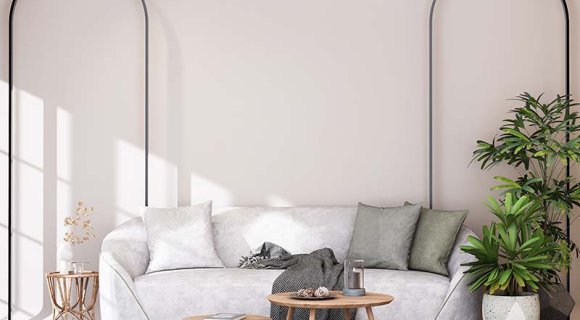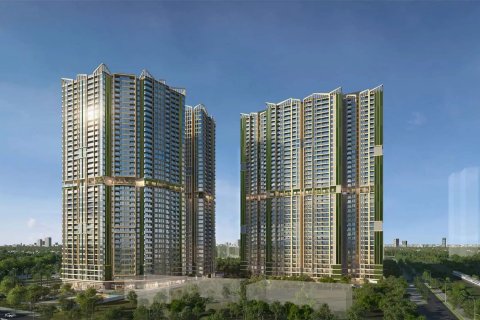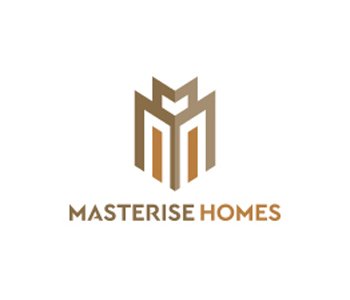
Vietnam is one of the nations in Southeast Asia, where today there is rapid economic growth, and the local real estate market attracts overseas investors. In this article, we will talk about how to purchase highly liquid property in this sunny country in compliance with all legal regulations.
Content:
- Overview of buying property in Vietnam
- The most promising investment destinations
- Tips for buying property in Vietnam
- Property taxes and fees
- Buy a home in Vietnam with us!
Overview of buying property in Vietnam
Vietnam is the third most populous country in Southeast Asia with almost 100 million inhabitants. Foreign citizens can currently quite easily purchase real estate in various locations in the republic. Many overseas investors prefer to buy housing in large cities such as Ho Chi Minh City (Saigon) and Hanoi. However, coastal and resort areas, such as Nha Trang and Da Nang, offer many highly liquid real estate options.
Foreign citizens have the following rights when purchasing housing in Vietnam:
- Purchasing a property through a long-term lease for 50 years with the possibility of extension. Until July 1, 2015, it was impossible to extend the lease;
- According to Vietnamese law, the state is the sole owner of the land. Due to this, foreigners can only have the right to use the plot, and not ownership of it;
- Exchanging;
- Transferring;
- Renting and subletting;
- Bequeathing;
- Donating;
- Mortgaging.
Foreigners married to Vietnamese citizens have the same property rights as locals. According to the state’s housing legislation, any overseas national holding a Vietnamese visa is allowed to make a purchase. When it comes to rentals, they must obtain a permit from the Housing Administration of the local People’s Committee.
It is worth keeping in mind the restrictions on the number of purchased properties. Foreigners are not allowed to buy more than 250 detached villas in one administrative district or more than 30% of residential units in an apartment building.

The most promising investment destinations
Many investors are interested in purchasing housing in Ho Chi Minh City (Saigon), Vietnam’s centre of trade and economy. The business districts of the city, 1, 2, 3, 5, and 10, are seeing the most development.
District 1 has many skyscrapers, offices, and hotels, and the number of apartments and large residential developments is on the rise. Housing prices here are higher compared to other locations. District 2 is also known for its high standard of living. It is a premium real estate hotspot. District 3 attracts many foreign citizens. It is home to many bars, restaurants, and other establishments, just like District 1. If you are looking for more affordable properties, consider Districts 5 and 10.
Hanoi, the country’s capital and second largest city after Ho Chi Minh City, also has attractive relocation and investment destinations. Here are the most popular districts:
- Tay Ho. This neighbourhood is chosen by many expats due to its well-developed infrastructure, abundance of natural areas, and relaxed lifestyle. However, the cost of housing here is also considered one of the highest in all of Vietnam.
- Hoan Kiem. The city’s old quarter does not have much real estate available for purchase. However, if you do find any listings here, the price will be high due to the historical and cultural value of this district. That said, the purchase will be a profitable investment.
- Dong Da. The area has a large population and is home to many shops, restaurants, and healthcare facilities. This is a promising location for investors and expats.
- Hai Ba Trung. It is one of the fastest growing areas in Hanoi. Housing prices here are quite high compared to other parts of the city due to the constant growth of the economic sector.
Da Nang is a picturesque coastal city with a population of over a million people. It ranks third in size among Vietnam’s megacities. It attracts wealthy foreign investors and retirees, which makes it one of the most popular locations. Interestingly, there are more branded hotels and residences, and condo hotels of famous international chains, such as Hyatt, Sheraton, Movenpick, and others, here than in the capital, Hanoi. Like many other coastal cities, Da Nang has an abundance of luxury real estate options with ocean views. Upmarket properties are also located on the banks of the Han River, which flows through the centre of the metropolis.
Nha Trang, which is closer to Ho Chi Minh City than other beach resorts in Vietnam, is becoming increasingly popular among holiday home owners and landlords. With the country’s growing middle class, Nha Trang is attracting more and more local tourists. Property prices here are significantly lower than in Da Nang, but it is also popular among expats and travellers.
Tips for buying property in Vietnam
First, check the reputation of the seller before purchasing a home. The land register in Vietnam is well documented, and plots in major cities are carefully monitored. Investors usually do not have any difficulties regarding long-term leases. However, unscrupulous sellers may remain silent about certain issues. Therefore, it is very important to carefully check the developer or reseller before making a purchase. It is recommended to avoid companies with a bad reputation so that you do not fall into the hands of scammers.
If you want to make investing easier, hire an estate agent. Of course, their help will add to your expenses: the services will cost about 3% of the transaction value. A competent specialist can lend their expertise and assistance at every stage of choosing and purchasing a home.
It is also important to keep up to date with the latest news in the Vietnamese real estate market. Hanoi and Ho Chi Minh City are the two largest cities experiencing high growth in residential, commercial, and office developments. If you are seeking beach property in locations with a well-developed tourism sector, consider Nha Trang and Da Nang.
Property taxes and fees
The following taxes and fees apply when purchasing a home in Vietnam, which investors should be aware of:
- VAT. The buyer is required to pay 10% VAT when purchasing on the primary market.
- Maintenance fee. The new owner also pays a maintenance fee of 2% of the property value.
- Registration fee. Its rate is equivalent to 0.5% of the property price.
- Tax on rental income. Buyers receiving rental income must pay a tax of 10%, including 5% personal income tax and 5% VAT.
- Capital gains tax. The seller is required to pay a 2% flat tax even if there is no capital gain.
- Land tax, the amount of which ranges from 0.03 to 0.15%.
Owning a house or apartment in Vietnam offers good income opportunities due to positive demographic trends and a growing middle class. The state is experiencing rapid economic development, so purchasing real estate here is a smart way to make a profit for foreign investors.

Buy a home in Vietnam with us!
To find real estate options that match your preferences, check out the offers on our aggregator website. Here you can sort properties by price, location, cost, and other parameters. All listings presented on the website are from trusted real estate agencies and developers, which guarantees the security of the transaction. Now is the perfect time to start searching for your ideal home in Vietnam. Good luck!











